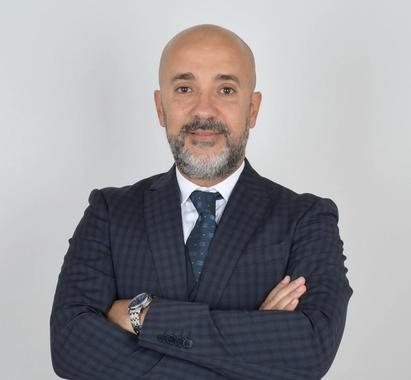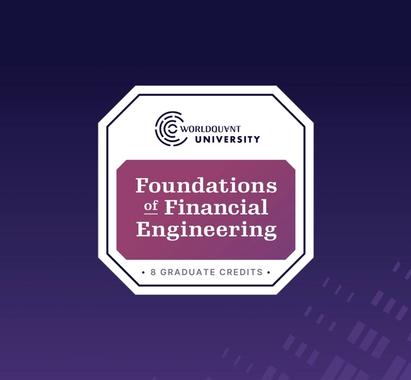What Can You Do With A Master’s Degree In Financial Engineering?

The late 70s saw the emergence of Wall Street’s “financial rocket scientists” who defied traditional thinking and forged new financial frontiers. We like to think of them as the original Financial Engineers. Since then, the field of Financial Engineering has exploded, giving rise to MScFE degree programs that power a new kind of career trajectory.
As businesses have become more data driven, the degree has continued to evolve and expand. It is now a truly multidisciplinary degree that opens the door to many different career paths.
Today WQU is training a new kind of financial engineer — one who is as comfortable with coding and business strategy as they are with risk management and data analysis.
DEFINING THE DISCIPLINE
At its core, Financial Engineering is a multidisciplinary field that combines financial theory, mathematics applications, engineering methods, and programming practices.
In practice, Financial Engineers are seekers of patterns and analysts of quantitative data. They’re focused on preventing the worst and predicting the best.
Becoming a financial engineer requires an advanced understanding of the profession’s core competencies, including applied mathematics, statistics, computer programming, and economics.
The programming, data analysis, and modeling skills in financial engineering can be applied in sectors ranging from technology to education, climate and life sciences to government. Financial engineers now have a host of new data to mine to create tools and simulators to benefit decision-makers.
While more institutions are beginning to offer undergraduate degrees that address these various disciplines, most practitioners gain their skills through graduate programs such as WorldQuant University’s MSc in Financial Engineering.
IN-DEMAND SKILLS FOR MANY SECTORS
2022 graduates from Berkeley’s Master of Financial Engineering program have gone into industries like asset management and investment banking. Their jobs entail responsibilities like portfolio management, quant research and analysis, trading, data science, and more.
These students begin careers with the traditional quantitative and mathematical skills, but with full knowledge of the changing needs of the global economy.
These days, companies of all kinds are hiring Financial Engineers. It’s not just financial institutions like Goldman Sachs, BlackRock, and Morgan Stanley. Financial Engineers are also being hired at tech companies like Microsoft, Google, and IBM.
Increasingly, innovation is driving demand for the rigorous analytic capabilities and training of financial engineers.
Forward-thinking companies are realizing they need the skills of Financial Engineers to leverage data in their business strategies and stay competitive. With the mountains of data now available to companies, Financial Engineers are often tasked with developing unique corporate strategies.
In this changing world, many businesses are exploring and investing in new green frontiers that take into careful consideration the environmental, social, and governance (ESG) factors that can impact financial futures. Investing in ESG not only secures a future in which climate change is appropriately prioritized, but it also helps a business maintain a socially conscious, sustainable portfolio.
Financial Engineers will lead the way, running quantitative risk models to predict whether these new offerings in the financial sector will be viable and profitable in the long run.
No matter what industry they enter, Financial Engineers are innovators by nature - they cannot help but discern the patterns amongst the chaos. These patterns lead to insights and innovation in an increasingly competitive business environment.
YOUR NEXT STEP IS NOW
Traditional career paths have historically begun in college with the choice of a major, followed by an internship in a chosen field, and then a job. However, that model has not been viable for several decades. Reskilling and maintaining a growth mindset is now an essential part of having a long career in an ever-changing world.
WQU provides an accessible route to the future of work - one which is international, ever-evolving, and multidisciplinary. The degree that once led to a straight path into the world of portfolio management has become an invitation to apply your skills in any industry.
The financial rocket scientists are back, and they’re helping to shape the future of nearly every industry across the globe



